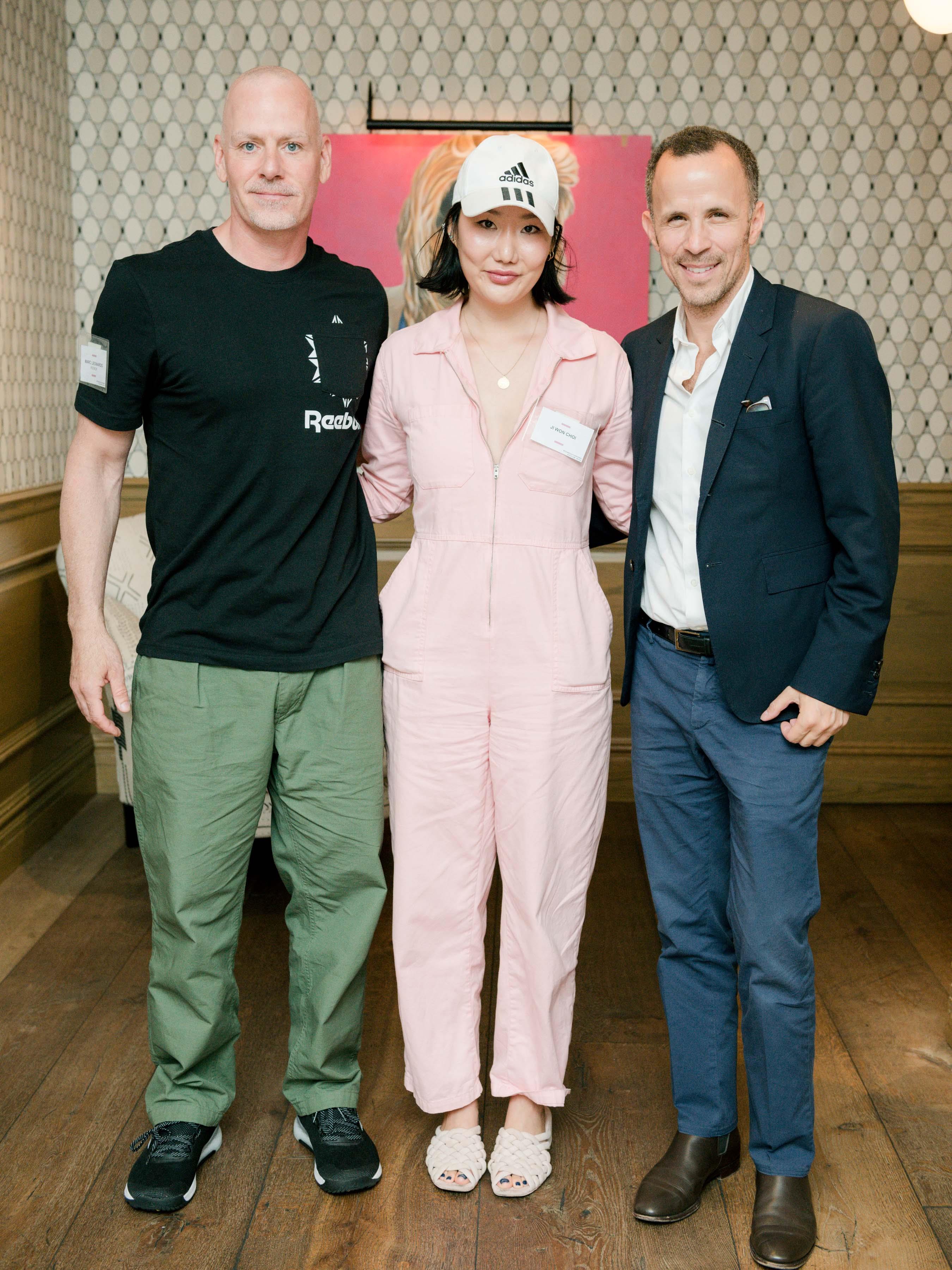“Regenerative Designers – Renewal, Restoration and Growth” was the topic of a morning conversation at Monday’s CFDA Fashion Education Summit, where CFDA editorial and communications director Marc Karimzadeh explored the evolving role of the designer, how the industry maintains talent and prepares design students for the real world with recent Parsons graduate Ji Won Choi and Marc Leonardo, senior design director at Reebok.
Choi and Leonardo represent two different ends of the spectrum in American design right now. Choi graduated from Parsons two years ago, started her own collection and has engaged in capsule collections with global brands including Yoox and, more recently, Adidas Originals. Leonardo has been at Reebok, a brand giant, for 15 years.
As a young, independent designer starting her career, Choi noted the vast difference between being incubated and nurtured at design school and the realities of starting a business. “In school, you don’t really learn that,” she said of start-up business acumen. “You’re taught to really go above and beyond and create all of these crazy options. But in the real world, it is a business and the most important thing I’ve learned is that at the end of the day, you would want to sell these clothes.”
Looking back, she wishes there would have been more of an emphasis on business courses available in her curriculum to prepare her for the less creative side of the industry.
Leonardo also recognized that designers should have an awareness for the business and finance side of things. “Designers don’t have to have MBAs, but I see a high level of success in understanding design as it relates to the industry that I’m in,” he said. “Having an acumen for business — not necessarily profits and MWBs, but just how it’s important in building. How much is the yield cost? What sort of manufacturing process are we after?”
From Leonardo’s perspective, he’s not necessarily looking for just creativity or leadership when he recruits new designers. “When Reebok is looking for young talent, we want people that have a shared sense of value –something that’s important to them, something that’s important to the brand,” he said. “Designers need to be like a Swiss Army tool. You need to be good on many levels. You’re making choices every day. You’re choosing to create product. You’re choosing materials, color, graphics. You’re choosing where your product is manufactured. Part of that is being very connected to the value of the brand.”
To that end, the role of the designer has changed and evolved over the years. “You’re not just designing anymore. You are a businessperson. You’re doing marketing. You are doing the PR,” said Choi. “I’m just starting out so obviously I’m doing every different aspect myself. You have to be everywhere and you have to really adjust yourself so you can fit into all of these different roles.”
Leonardo noted that, on a broad scale, designers need to be aware of a multitude of global and cultural issues that feed into design. “Inclusivity is important. Sustainability is important. Mindfulness with what your brand stands for,” he said. “This is a paramount narrative that I talk about with the design team. I don’t think it’s necessarily important to make a proclamation about it. You just have to do it now.”
Both Choi and Leonardo see the new generation of American designers being more connected with social commentary and impact than ever before.
“When I was in school, all of my peers were taking a stand on something,” said Choi. “I think that’s just everything about fashion right now.”
Leonardo noticed that it feels particularly American to not be weighed down by heritage, but to be focused on what’s next. “It’s about being new, contemporary, fast,” he said. “That’s very inspiring.”
The 2019 CFDA Fashion Education Summit was made possible by underwriters Dia & Co and Reebok with additional support from Adrian Cheng/K11 and The Standard.
Pictured: Marc Leonardo, Ji Won Choi, and Marc Karimzadeh.



